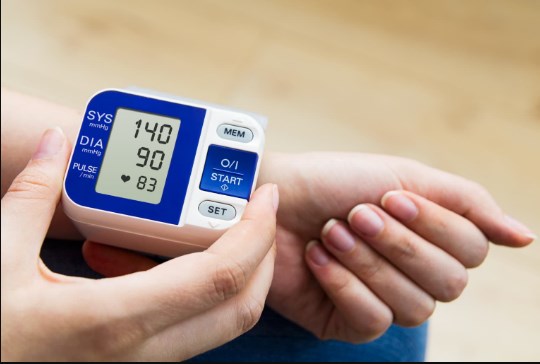People who snack all day are more likely to develop high blood pressure and have a stroke, a new study has found. Yes, it is normal if you sometimes take a light nap of 10-15 minutes in the afternoon, but if these naps go beyond this period and become your routine, it can cause many problems for your health. However, only one reason is mainly responsible for daytime tilting and that is poor night sleep. "A poor night's sleep is associated with poorer health," clinical psychologist Michael Grandner said in a statement.
The study found that people who usually nap during the day are 24% more likely to have a stroke and 12% more likely to develop high blood pressure compared to people who never sleep. According to a study published Monday in the American Heart Association's journal Hypertension, people age 60 and younger whose daily routine has become daytime naps have a 20% increased risk of developing high blood pressure compared to those who rarely sleep.
The American Heart Association recently added 'sleep duration' as one of its eight essential metrics for heart and brain health. These results held true even after the researchers excluded from the study people at high risk of hypertension, such as those with type-2 diabetes, current high blood pressure, high cholesterol, sleep disorders, and those who worked night-shifts. were excluded from the study.
અહીંથી વાંચો સંપુર્ણ ગુજરાતી માહિતી રીપોર્ટ
Director of the Center for Circadian and Sleep Medicine at Northwestern University Feinberg School of Medicine in Chicago, Dr. Phyllis Zee said, 'The results show that too much sleep increases the chances of hypertension and stroke. These results did not change even after taking into account all factors associated with risk of cardiovascular disease and stroke.'
Prolonged sleep is worse for health
The study used data from 3,60,000 people who provided information about their sleeping habits to the UK Biobank. The data was for UK residents from 2006 to 2010. People in the study provided regular blood, urine, and saliva samples and answered all sleep-related questions during the four-year study. However, only nap frequency was collected in this study, not duration.
What should sleep be? They did not define it. Associate professor of clinical medicine at the University of Southern California's Keck School of Medicine, sleep specialist Dr. Raj Dasgupta said, "If you are sleeping for an hour or two, you cannot call it 'napping' (lying on your side).
A 15 to 20 minute 'power nap' between 12pm and 2am is 100% effective if you are prone to napping, but if you suffer from chronic insomnia then 'napping' is not for you at all, it is part of your regular nightly sleep life cycle. can be disturbing. Most of the people in the study who regularly napped for 2-4 hours a day, smoked cigarettes, drank, snored and had insomnia.
Many of these factors can affect the quality and duration of a person's sleep, experts said. Poor sleep leads to excessive daytime fatigue, resulting in excessive sleepiness throughout the day. I believe that long naps during the day are a sign of a sleep disorder. It can lead you to high blood pressure, type-2 diabetes, which are risk factors for heart disease.



No comments:
Post a Comment